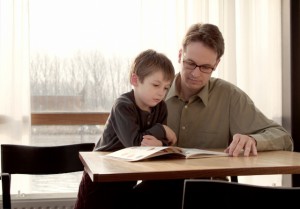 Got up this morning in London after experiencing some of the great joys of international travel: delayed flights, missed connections, no way to reach any of the carrier’s employees, language issues, and finally a different airline and route. But I got here.
Got up this morning in London after experiencing some of the great joys of international travel: delayed flights, missed connections, no way to reach any of the carrier’s employees, language issues, and finally a different airline and route. But I got here.
When I got up this morning, I put on BBC News (Just a side note, I was informed by my son yesterday when we were getting up early for our respective flights, his to go home and mine to go to England, that I was once again behind the times. I get up and turn on the news and he informed me that evidently most of the world wakes up and checks Facebook. He had in fact gotten up at 5:45am, checked Facebook, read my blog post that had been put up while he was asleep and found a spelling error for me– what a fine young man) and my day was greeted with a story about creating different grading standards for children with late birthdays. Aha, someone is paying attention. They were referring to some study–which I missed, but the results are logical and a study should not have been necessary anyway–but the study showed that children with later birthdays struggled more than their “older” (as in, a matter of months) peers, and they were considering creating a different grading system for these “younger” children. This story immediately elicited two lines of thought. (I hadn’t had any coffee yet, coffee might have produced a few more, and oh, then there was jet lag.) The first was that although they probably didn’t know it, the different levels of function represented different levels of sequential processing. The second was that the artificial narrow competition of the school structure was fraught with inherent problems, not the least of which is that the children are thankfully not all the same.
As all of our enlightened NACD parents know, the foundation that permits us to learn and think is this marvelous thing called sequential processing that develops in different rates in different individuals, partially determined by general neurological organization and maturity and through opportunity, and which can be accelerated through targeted developmental intervention. All things being equal, the younger children in a classroom will have slightly lower processing abilities than their more senior classmates. This “slight” disparity is enough to obviously significantly affect the ability of these younger children to attend, process what they see and hear, think, learn, and communicate. As many of our families will attest to, even a small incremental change in sequential processing (which translates into short-term memory and working memory and is the foundation for the all so important executive function and global maturity) can produce very significant, if not dramatic, change in the child’s overall function and maturity.
And then there are schools, levels, grades, groups of children of almost the same age–what a fantastic invention, and mass education–how wonderful. However, the reality is that there are many problems associated with such narrow competition, an extremely unnatural and negative social construct. It gets so old hearing about kids and their peers, fitting in with their peers, socializing with their peers, competing with their peers. I’m very fortunate; I live in a huge world, made up of newborns to geriatrics, people of different ethnic and social origins, people with no education and people with multiple doctorates. In my day-to-day life I am in competition with absolutely no one. I am free to be my unique self, know what I know, learn what I care to learn, be perceived as having value based on what I know, not what I don’t know, buy my clothes at Costco or Nordstrom’s, listen to Bach or Neil Young, know next to nothing about contemporary music, or what is “in.” How great is that? I am free to continually discover who I am and enjoy the quest. I am permitted these great freedoms because I live in a relatively free country and because I am not forced to spend my day with my “peers,” particularly my chronological peers, who quite honestly seem rather old. If I had to judge myself on a very narrow view of myself based almost entirely on the distorted information that I could obtain from spending my day with my peers, I would probably fall into a deep depression.
I have a great idea for a business that is designed to fail: Let’s create a cruise ship and cater to everyone who longs to be back in 8th grade. To get on our cruise you must be born in a specific twelve-month period. On our cruise we are going to take lots of tests and all of our scores will be posted and announced. (Isn’t this sounding like fun?) We will take math tests–the mathematicians, engineers, and physicists will be happy. They can laugh at the other 99% of us. Then there are the English tests–probably another 99% are at least concerned. Physics, chemistry, world history, geography, and oh, how about Spanish, French, German, or Latin? Well, we don’t want to spare any egos, so lets have physical competitions. How many pushups can you do? Sit-ups? Can you run a mile? We could even expand to some sports that some of our peers still play, like golf- sounds like an F to me. Wow, isn’t this great fun? Now let’s do the clothing labels test. Who made that shirt? What shoes are you wearing? How about the music test, the art test, the who-is-your-best- friend test? Or the how-little-is-your-nose, or how-flat-is-your-belly test? Or the how-much-money-do-you-make or what-kind-of-car-do-you-drive test?
To make sure our business really fails, let’s not let anyone get off the ship, and let’s sail for at least twelve years, and let’s repeat these tests every week—such fun! At the end of this, who would have the faintest idea of who they are, and how many would have an ego left intact? We had better not permit any weapons aboard. I’d bet they wouldn’t even have a child development test so that I could show off; or if they did I’d disagree with the teacher and still get an F.
Should the younger children get easier tests? Or should we help children develop the real skills they need to function and totally reevaluate this relatively recent experiment, which is our educational system, and come up with a better plan? Perhaps all the children aren’t broken; perhaps it’s the system.
Related Links
The Simply Smarter Project
Simply Smarter Kids
Simply Smarter System (new version coming soon)
NACD International
 Today I have been seeing families in Bucharest, Romania. This is my second of eight days of seeing children and families here. I arrived in Bucharest after seeing children in Barcelona and London. Between these three cities I will have seen families from many different countries. All of these families have children with developmental issues; all of these families are dedicated to their children; and all of these families are assuming responsibility for their children and their children’s futures. They are all exceptional and can serve as models for parents and families everywhere, not just families of children with issues, but all families.
Today I have been seeing families in Bucharest, Romania. This is my second of eight days of seeing children and families here. I arrived in Bucharest after seeing children in Barcelona and London. Between these three cities I will have seen families from many different countries. All of these families have children with developmental issues; all of these families are dedicated to their children; and all of these families are assuming responsibility for their children and their children’s futures. They are all exceptional and can serve as models for parents and families everywhere, not just families of children with issues, but all families.
 NACD now has an extensive recommended reading list that I want to share with you. When reviewing the book list, please keep in mind that there are various ways to experience, enjoy, and learn from a book. Books should be viewed as a from of entertainment; a resource for knowledge; a means by which to develop vocabulary, build the ability to process, visualize, conceptualize, and understand information, and a means to learn about history, people, and life. Through books we can learn about fantasy, learn to imagine, dream, and create. Without the benefit of books it is very difficult to learn and understand the human condition. We can learn from the lives and experiences of others and develop a deeper understanding not only of others, but ourselves. We can gain these benefits not only by reading these books ourselves, but also through the experience of others reading them to us, from the shared experience through book clubs, from shared reading, and even from audio books. As you review this list and pick books for your child (or help them pick books), remember these options. If you want the child to enjoy a book that they are going to read themselves, you don’t want the vocabulary to be too challenging. You want them to be able to read and move through the book relatively quickly. If the book is a bit more challenging, consider shared reading. With shared reading you read a paragraph or a page, and your child reads the next. With shared reading you can help your child with any new or difficult words, and with your reading with your child you can keep the pace moving fast enough to keep it interesting. If the book is even more difficult, simply read the book to your child, or if time does not permit, see if you can find an audiobook version. Always try to encourage your child to have a dictionary handy, or preferably one of the new app dictionaries, that can give your child the pronunciation of the word as well as the definition. The best way to teach this is by example.
NACD now has an extensive recommended reading list that I want to share with you. When reviewing the book list, please keep in mind that there are various ways to experience, enjoy, and learn from a book. Books should be viewed as a from of entertainment; a resource for knowledge; a means by which to develop vocabulary, build the ability to process, visualize, conceptualize, and understand information, and a means to learn about history, people, and life. Through books we can learn about fantasy, learn to imagine, dream, and create. Without the benefit of books it is very difficult to learn and understand the human condition. We can learn from the lives and experiences of others and develop a deeper understanding not only of others, but ourselves. We can gain these benefits not only by reading these books ourselves, but also through the experience of others reading them to us, from the shared experience through book clubs, from shared reading, and even from audio books. As you review this list and pick books for your child (or help them pick books), remember these options. If you want the child to enjoy a book that they are going to read themselves, you don’t want the vocabulary to be too challenging. You want them to be able to read and move through the book relatively quickly. If the book is a bit more challenging, consider shared reading. With shared reading you read a paragraph or a page, and your child reads the next. With shared reading you can help your child with any new or difficult words, and with your reading with your child you can keep the pace moving fast enough to keep it interesting. If the book is even more difficult, simply read the book to your child, or if time does not permit, see if you can find an audiobook version. Always try to encourage your child to have a dictionary handy, or preferably one of the new app dictionaries, that can give your child the pronunciation of the word as well as the definition. The best way to teach this is by example. Got up this morning in London after experiencing some of the great joys of international travel: delayed flights, missed connections, no way to reach any of the carrier’s employees, language issues, and finally a different airline and route. But I got here.
Got up this morning in London after experiencing some of the great joys of international travel: delayed flights, missed connections, no way to reach any of the carrier’s employees, language issues, and finally a different airline and route. But I got here. I have spent this week in Barcelona, lecturing on developing cognitive function in children with Down syndrome, seeing some great families, and getting to know this new Barcelona. I traveled here and actually lived here for almost a year back in the seventies. It is incredible how much has changed in forty years. The city has grown tremendously, added a lot of new modern buildings, dramatically resurrected their port area, and really changed the complexion of the city. Since hosting the Olympics in 1992, the city has become much more diverse in its population and has become a favorite of tourists.
I have spent this week in Barcelona, lecturing on developing cognitive function in children with Down syndrome, seeing some great families, and getting to know this new Barcelona. I traveled here and actually lived here for almost a year back in the seventies. It is incredible how much has changed in forty years. The city has grown tremendously, added a lot of new modern buildings, dramatically resurrected their port area, and really changed the complexion of the city. Since hosting the Olympics in 1992, the city has become much more diverse in its population and has become a favorite of tourists.